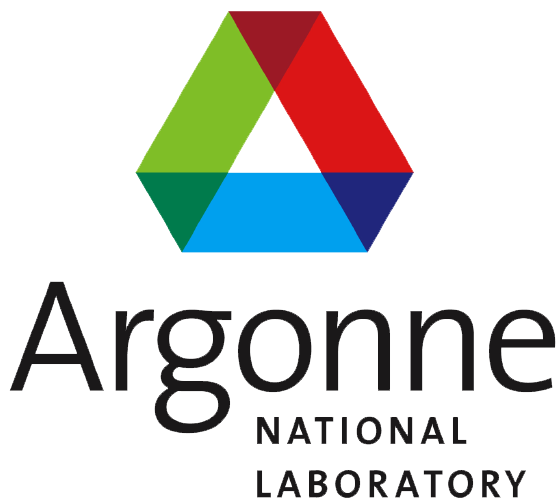Building Modules with CMake¶
If you haven’t followed the initial example in Hello, Cyclus! [C++], you should use
cycstub to generate a directory with the “stubs” to build a new archetype.
(see Hello, Cyclus! [C++] for further instructions).
The cycstub utility provides a number of critical tools for building your own
module:
install.py: a basic installation scriptcmake: a directory of CMake modules (e.g. finding Cyclus and its dependencies on your system)cmake/UseCyclus.cmake: a CMake module that defines important Cyclus module build/install macrosCMakeLists.txt: a generic CMake driver that will work for most build configurations out of the boxsrc/CMakeLists.txt: a starter file that determines how the module build is executed (utilizing the macros inUseCyclus.cmake)
The remaining portion of this page covers the various features provided in
UseCyclus.cmake and their use in the src directory’s CMakeLists.txt
file.
Using UseCyclus¶
UseCyclus.cmake defines the following macros for building and installing
Cyclus modules:
USE_CYCLUS: informs the build system of the source files related to an archetype implementation and its tests, if tests existINSTALL_CYCLUS_MODULE: install a collection of archetypes that all belong to the same moduleINSTALL_CYCLUS_STANDALONE: install an archetype as a standalone module
UseCyclus Vocabulary¶
The UseCyclus.cmake macro suite uses the following terms:
lib_root: The root name for the to-be-installed library (e.g.,MyAgentfor a standalone install ormy_modulefor a module install).src_root: The common prefix for all source files required to implement and test an archetypes. For example if yoursrc_rootismy_agent, the macro suite will be aware of the following files:my_agent.ccmy_agent.hmy_agent_tests.ccmy_agent_tests.h
lib_dir: The install directory relative the Cyclus library installation directory. For example, iflib_diris blank (i.e. “”), the module will be installed in$CYCLUS_INSTALL_PREFIX/lib/cyclus/; iflib_diris something else, e.g.my_module_dir, the module will be installed in$CYCLUS_INSTALL_PREFIX/lib/cyclus/my_module_dir/. The value of$CYCLUS_INSTALL_PREFIXcan be queried by$ cyclus --install-path
test_driver: (optional) A custom GTest test driver. This is an advanced feature which will not be needed by most archetype developers.
UseCyclus Macro Arguments¶
Each UseCyclus.cmake macro has arguments included in the above vocabulary
listing:
USE_CYCLUS:USE_CYCLUS(lib_root src_root)
INSTALL_CYCLUS_STANDALONE:INSTALL_CYCLUS_STANDALONE(lib_root src_root lib_dir [test_driver])
INSTALL_CYCLUS_MODULE:INSTALL_CYCLUS_MODULE(lib_root lib_dir [test_driver])
Examples¶
Module Installation¶
The “Hello World” example only allows you to add multiple archetypes to the same module/library, using the USE_CYCLUS and INSTALL_CYCLUS_MODULE macros. If you call cycstub multiple times in the same folder, it requires you to specify the same path and library name for each new archetype. This approach reduces the number of libraries and executables that are added to a system, perhaps unnecessarily.
The resulting src/CMakeLists.txt file will includes lines like this:
USE_CYCLUS("TutorialLibrary" "tutorial_facility")
USE_CYCLUS("TutorialLibrary" "tutorial_inst")
USE_CYCLUS("TutorialLibrary" "tutorial_region")
INSTALL_CYCLUS_MODULE("TutorialLibrary" "")
This will generate:
a single shared object library in
$CYCLUS_INSTALL_PREFIX/lib/cyclus/tutorialnamedlibTutorialLibrary.so(*nix) orlibTutorialLibrary.dylib(mac)a single unit test executable in
$CYCLUS_INSTALL_PREFIX/binnamedTutorialLibrary_unit_tests
where both incorporate the TutorialFacility, TutorialInstitution, and
TutorialRegion archetypes.
Standalone Installation¶
There may be cases where one prefers to have separate libraries and executables
for each archetype. This is not currently supported by cycstub in a direct
way. However, you can modify the above module approach by editing
src/CMakeLists.txt and replacing:
USE_CYCLUS("TutorialLibrary" "tutorial_facility")
USE_CYCLUS("TutorialLibrary" "tutorial_inst")
USE_CYCLUS("TutorialLibrary" "tutorial_region")
INSTALL_CYCLUS_MODULE("TutorialLibrary" "")
with
INSTALL_CYCLUS_STANDALONE("TutorialFacility" "tutorial_facility" "" )
INSTALL_CYCLUS_STANDALONE("TutorialInstitution" "tutorial_inst" "")
INSTALL_CYCLUS_STANDALONE("TutorialRegion" "tutorial_region" "")
This setup will install three shared object libraries in
$CYCLUS_INSTALL_PREFIX/lib/cyclus/tutorial:
libTutorialFacility.so(*nix) orlibTutorialFacility.dylib(mac)libTutorialInstitution.so(*nix)libTutorialInstitution.dylib(mac)libTutorialRegion.so(*nix)libTutorialRegion.dylib(mac)
and three unit test executables in $CYCLUS_INSTALL_PREFIX/bin:
TutorialFacility_unit_testsTutorialInstitution_unit_testsTutorialRegion_unit_tests





